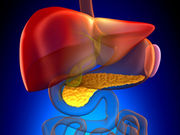Absent or reversed arterial Doppler flow linked to subsequent transplant failure
TUESDAY, June 28, 2016 (HealthDay News) — For pancreas transplant recipients, absent or reversed arterial Doppler flow is associated with subsequent transplant failure, according to a study published in the July issue of Radiology.
Tara A. Morgan, M.D., from the University of California at San Francisco, and colleagues examined whether ultrasonographic findings are associated with subsequent pancreas transplant failure in a cohort of 228 adult pancreas transplant recipients. The authors reviewed all ultrasound images obtained within the first postoperative year for arterial flow, splenic vein thrombus, and edema.
The researchers found that the nine of 20 failed transplants had absent or reversed arterial diastolic flow (sensitivity, 45 percent), compared with 15 of 208 transplants that survived (specificity, 93 percent); the Cox proportional hazard ratio was 6.2. Ten of 20 failed transplants and 25 of 208 transplants that survived had splenic vein thrombosis (sensitivity, 50 percent; specificity, 88 percent; Cox proportional hazard ratio, 4.2). The lowest specificity was seen for edema (Cox proportional hazard ratio, 2.0). Only absent or reversed arterial diastolic flow remained significantly associated with transplant failure in multivariate analysis (adjusted hazard ratio, 3.6; P = 0.045).
“Absent or reversed diastolic arterial Doppler flow has a stronger association with transplant failure than does splenic vein thrombus or edema,” the authors write.
One author disclosed financial ties to Synarc.
Full Text (subscription or payment may be required)
Copyright © 2016 HealthDay. All rights reserved.








